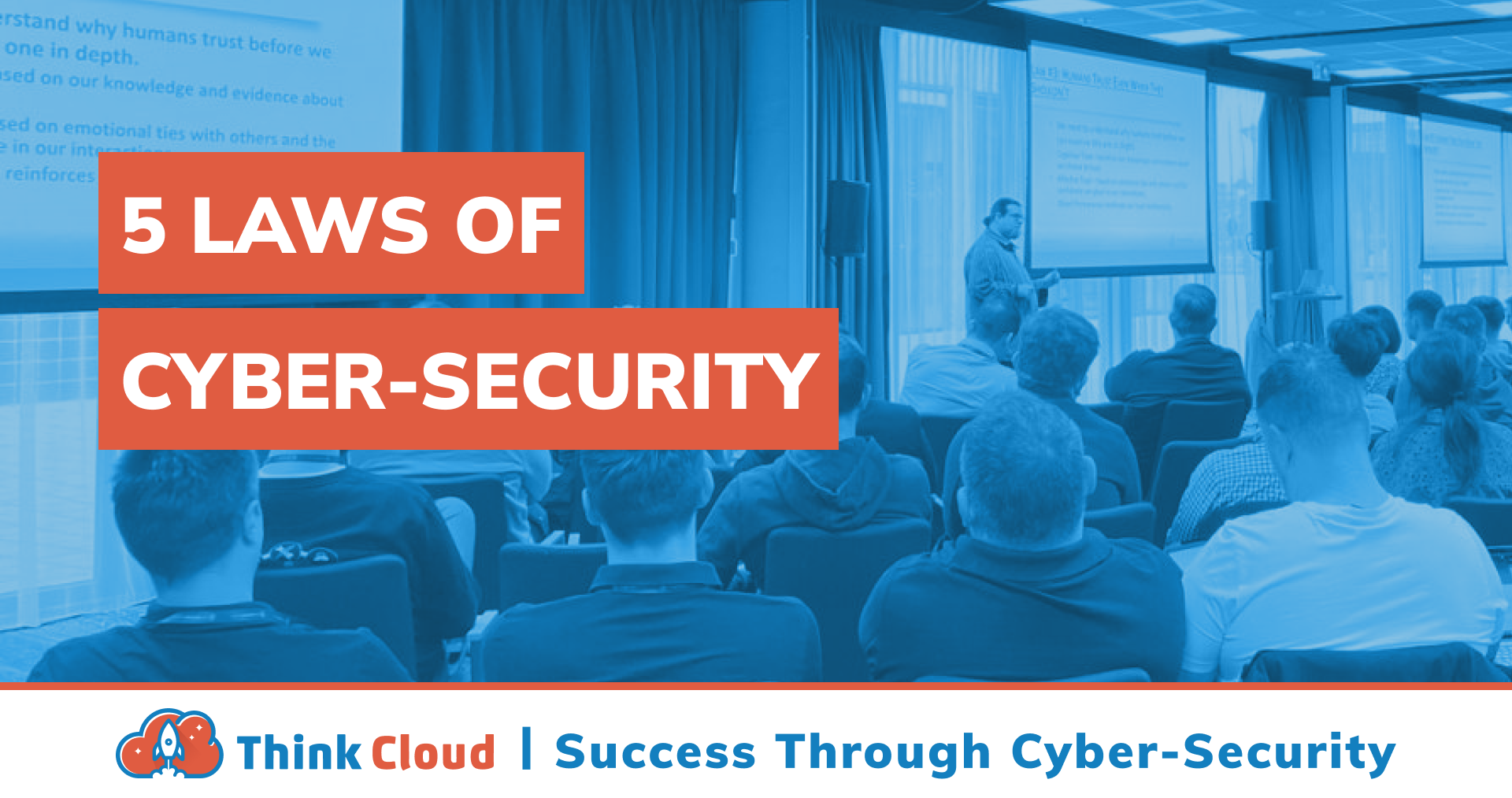5 Cyber Security Laws We All Need To Know
Introduction
Click on this text to edit it.
We leanred that despite our diverse background of language barriers and cultural beliefs, the information age and digital space unite us by creating unrestricted opportunities to connect worldwide. The internet has become a global village where we can communicate regardless of location or language. Yet, despite this interconnectedness, there often lies a communication gap and proper understanding of cyber security and online threats. To bridge this divide, Nick created his five cyber security laws to ensure everyone stays protected when navigating their digital lives. In Nick's own words, “it is my job to be the best nerd to English translator I can be to help the world stay safe online” So here's what we learned from Nick’s five laws of cyber security that are designed to do just that.
Law Number One: If there is a vulnerability, it will be exploited - No-Exceptions
When ancient empires came up with the idea of banks, someone thought, "I want to rob that". So since then, Banking has been a target of criminal gangs and activity. These robbery attempts have become increasingly sophisticated and complex over the centuries, leading to an arms race between would-be criminals and banks' security measures.
Since the first computer bug was discovered, bad or good hackers have been looking for ways to get around the laws, policies and protocols that govern a computer system application, even our society in general. It's mind-boggling to think about how far some people will go to find a way around whatever obstacle stands. The most dedicated hackers spend hours, days, and months researching and trying every method possible to exploit loopholes that enable them to do something for free or gain an undeserved benefit.
Some people have worked out how to block infra-red cameras from reading their registration plate using a simple self-adhesive, transparent polycarbonate cover. When placed over a number plate, it is almost impossible to detect by eye unless inspected closely. From simple activities like finding a way to shield your car’s registration plate to avoid paying toll fees or avoiding the law when snapped speeding, it’s incredible the time and effort some take to bypass paying a few quid!
Cybercriminals are everywhere and will stop at nothing to hack everything within their capabilities. It's up to us to safeguard our data and sensitive information against their relentless attacks!
Or, to the more obscure, In the mid-2000s, Stuxnet, a malicious computer worm, was used to infect a complex computer network and derail an entire illegal nuclear weapons programme. These days, finding ways around everything bad or good is known as 'life hacking.'
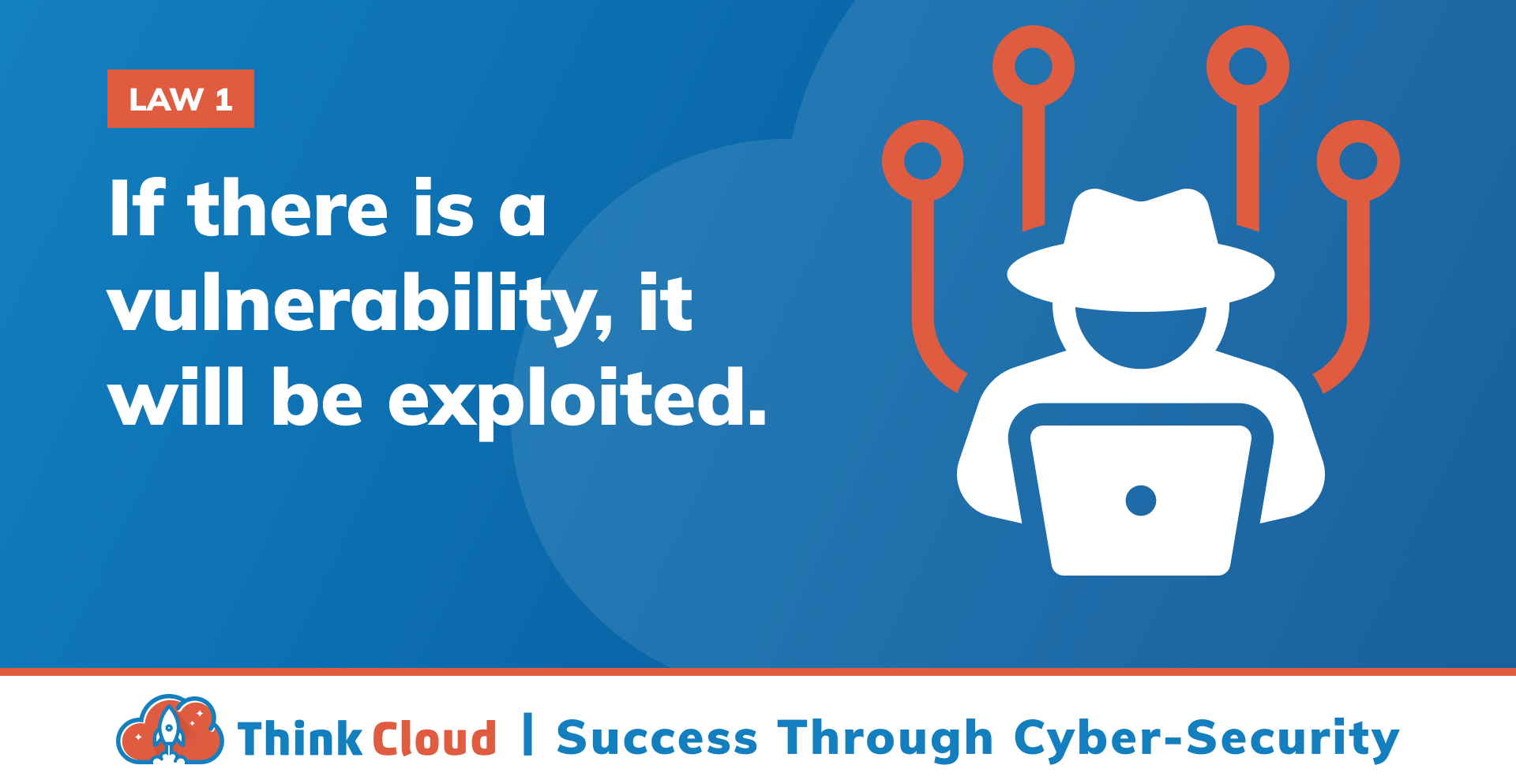
Law Number Two: Everything is vulnerable in some way
Cyber security is a major issue nowadays, and no matter how much time and money is spent on it, we can't keep ourselves safe from cybersecurity risks. Everything is vulnerable in some way - no matter where you look or what the organisation is, hackers are always lurking in the shadows and waiting for their opportunity to strike. From large retailers to health insurance providers, no company can escape from these cyber attackers.
We've seen data breaches' devastating effects, making us recognise cyber securities' importance! It's essential to protect our national security and organisations from potential threats! For decades, we've blindly trusted cloud security and computer processors to function innocently and do their job.
At the start of 2018, intel revealed that our technology workhorses carried a mess of catastrophic security vulnerabilities indicating that any hacker with malicious intent could bring chaos to all individuals, ranging from minor to primary, which means Law number two is unavoidable!
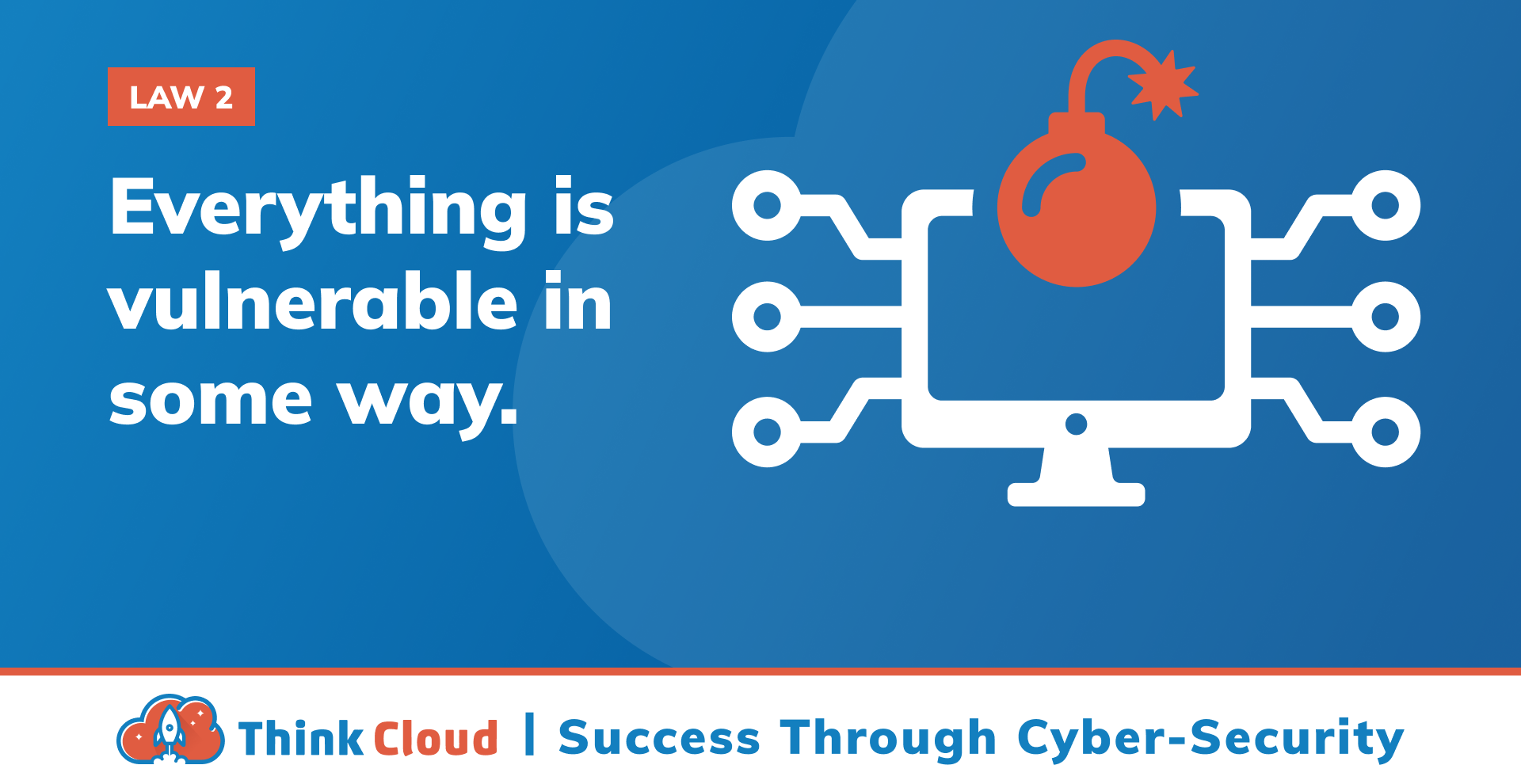
Law Number Three: Humans can trust even when they shouldn't.
Our lives are built on trust, yet trust can often get us in trouble. As much as we rely on it, trusting people can be tricky, leading to disappointment and misery. We must remember though - without faith in each other, there's no way our society could operate! We positively anticipate that our tech and anyone who aids us will perform at its finest – just like a light turning on the moment we flip the switch.
With increased digital technology, we must remain alert and informed so that cybercriminals don't take advantage. Just like how trusting our mechanic to fix a car takes diligent research to get the best result, we must extend this same amount of caution when dealing with digital tech and the people using it.
Trust is a two-way street, but it's become our kryptonite regarding cyber-security. Hacking and online scams using people’s naivety are still rampant and all too common. From the £20 antivirus that will do nothing for your device security, or the subjective perception that forms filled out online must be trustworthy, these issues contribute towards an alarming number of breaches in data security. And it sounds like society is failing when we hear Nick say,
”we have to combat trust if we're going to survive the non-stop hacking that's taking place”.
To maintain societal progress, trust must remain the cornerstone of our security. Facing trust head-on and finding an open zero-trust architecture is critical for our society to evolve through innovation, as it has up until now. This takes us to law number four…
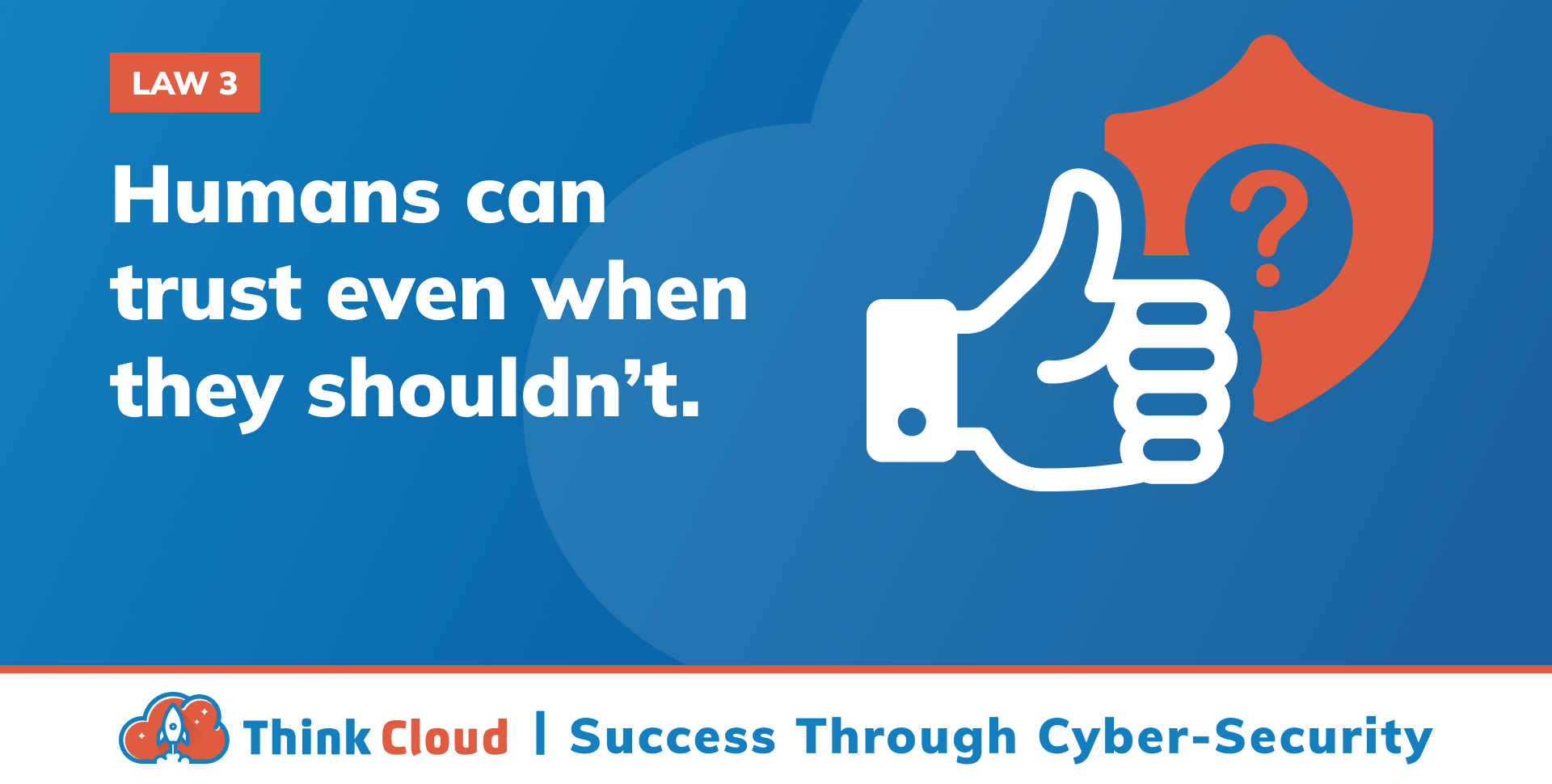
Law Number Four: with innovation comes an opportunity for exploitation.
Innovation can be a double-edged sword, offering extraordinary potential and the chance of manipulation. Brilliant minds are everywhere - Alexander Graham Bell made the world smaller by inventing the telephone, connecting people worldwide. Bill Gates changed our lives with his Windows computer operating system, bridging humanity’s technological gap in a single mouse click and keystroke. Mark Zuckerberg created an unparalleled social media platform that brings billions of us together daily to share life experiences and tell our stories!
We now live in a digital age of IoT, and our lives have been revolutionised with new and improved ways to simplify life. But while this technology has its merits, hackers lurk in the shadows waiting to exploit any vulnerabilities they can find - like when Hackers impersonated a company's CEO and requested that more than €220,000 be fraudulently transferred using artificial intelligence-based software during a scam - To how hackers can steal your passwords or to security researchers warning of “historical patterns of cyber attacks, and to expect to see cyber-attacks aimed at the west.”
Nick taught us that it's clear that with innovation comes risks and rewards, but staying one step ahead is vital for keeping ourselves digitally safe! Every day, revolutionary innovations are popping up to simplify our lives, from the comfort of our homes to taking care of ourselves. From cars that drive themselves to medical advancements designed for health and wellness, there's no shortage of new inventions!
Nick shared a story of a digitally connected toaster that wreaked havoc on a network. Sharing how Andrew McGill was expecting a slow and steady race against cybercriminals when he built an Internet-connected toaster, but they were hot on his heels. Just 41 minutes, with two more attempts, followed within 1- 15 minutes! How a massive network of hacked IoT devices helped shut websites down, even Twitter!
As our world races forward into the future, Nick urges us always remember law number four - A reminder that with innovation comes the opportunity for exploitation.
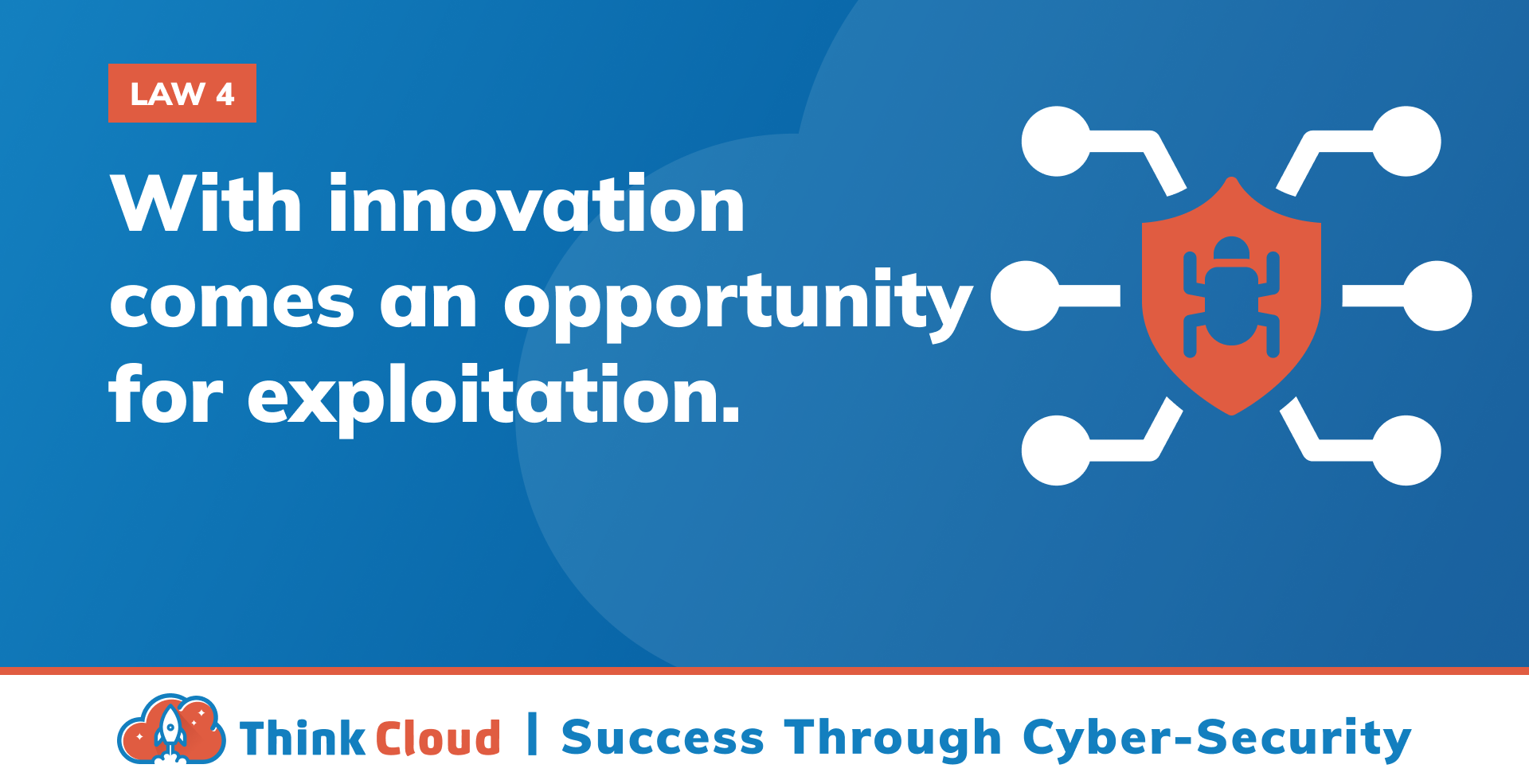
Law Number Five: when in doubt, see law number one
And to finish off, Human nature has an uncanny ability to take advantage of even the tiniest weaknesses in security systems. If there's a vulnerability, it will always be exploited with no exceptions. To stay safe online, we must understand this truth and think like hackers!
Remembering and understanding these five laws will help make better decisions when it comes to cyber security. Apply these principles in your work and personal life to create a securer foundation for yourself and those around you.
Nick says perfectly:
"If we ever forget this, we do nothing but ask for trouble. Our ability to defend ourselves properly comes from understanding that human nature makes these laws immutable. And when we start thinking like a hacker is when we can stop them.”
A quick guide from our notes learning Nick Espinosa's amazing framework of the Five Laws Of Cyber Security. You can stay safe online and keep your data out of the wrong hands. Remember: If there is a vulnerability, it will be exploited.
Ps. to learn more about Nick head over to his awsome Youtube Channel for his weekly "Your Breaches Of The Week" videos. Or connect with him on @NickEspinosa over on Linkedin you will be glad that you did!
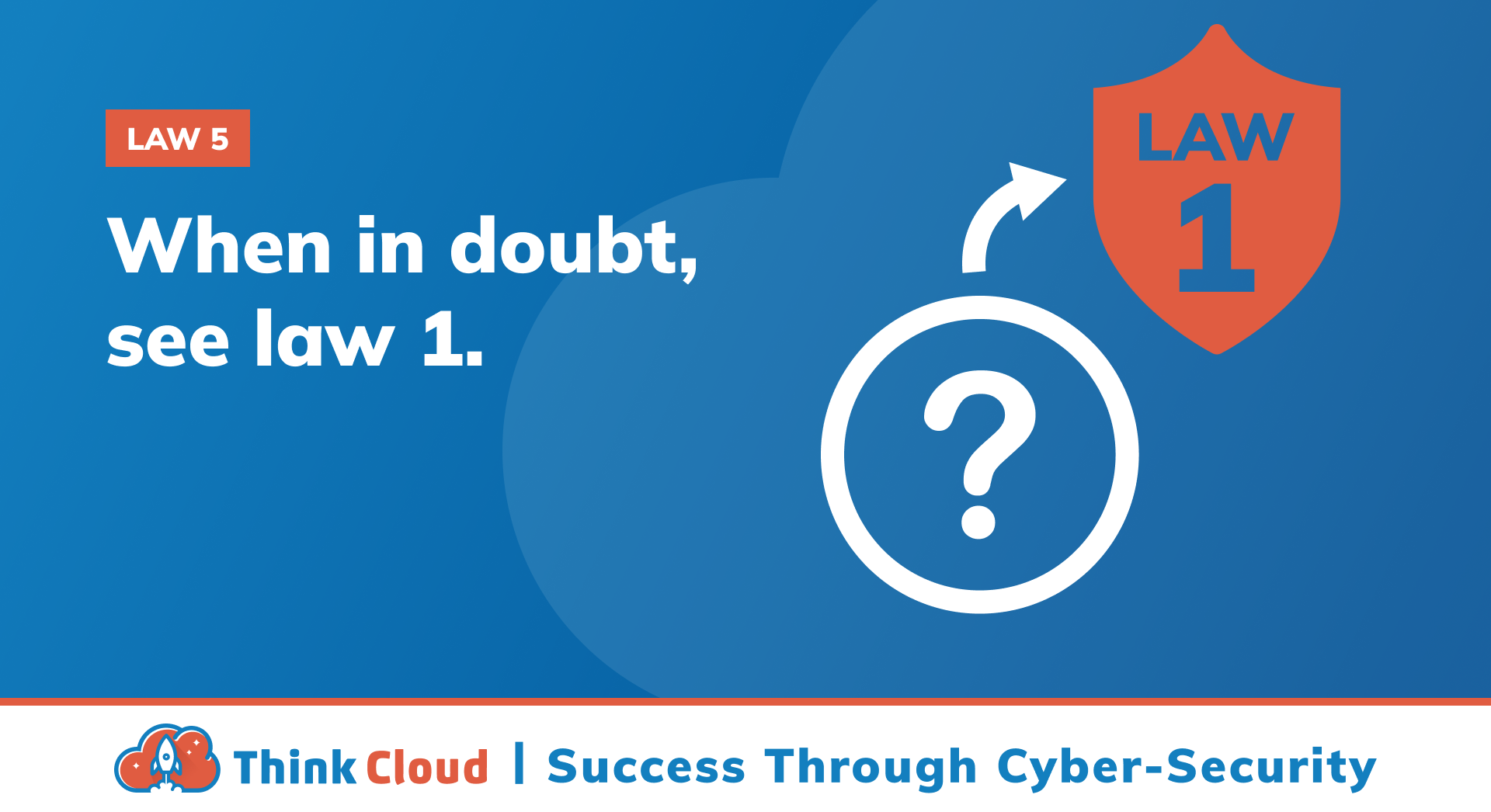
When Was The Last Time You Had A Cyber Risk Assessment?
Think Cloud are award-winning Cyber Security Specialist based in Hull, East Yorkshire. Check out how our outsourced Cyber Security can help your business: Outsourced Cyber Security Protection
We assist organizations of 10–250+ users in reducing Cyber Security risk by assisting them in taking full advantage of our Essential Cyber Security Solution. We also provide comprehensive cyber security training and have made our key courses free to all UK Organisations.
Don't Be A Sitting Duck; Things Have Changed. Cyber Attacks Are Up! Learn how to stop hackers, including the secrets to protecting your business. Take-free training today
Free - Sign up for our free Cyber-Security Master class + Learn how to Reduce your Human Cyber Risk here
THE NORTH’S PREMIER CYBER SECURITY & MANAGED IT PROVIDER!
At Think Cloud We Help You Work Faster, Work Smarter, Work Better - Together!
If you like to Think different and want access to more inspirational content then head over to our 'The Hack Podcast' pages.
Based in the heart of the digital tech hub in Hull, East Yorkshire, find out how Think Cloud's award-winning IT Support can empower your business to operate more efficiently.
Award-Winning Cyber Security & IT Solutions for 10 - 250+ Staff.
Tagged as: Cyber Security, Tech Articles
Share this post:

